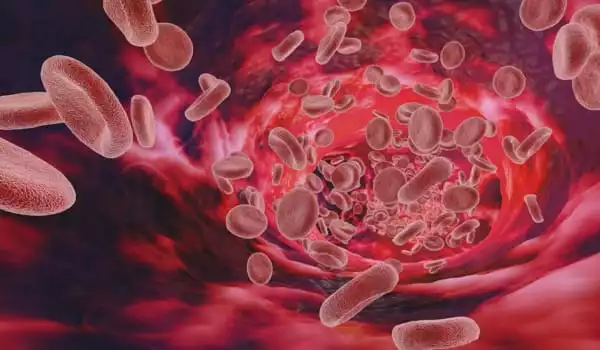A high-protein diet is generally not hazardous to most healthy persons, especially when followed for a short period of time. These diets may aid weight loss by making you feel fuller. However, the long-term hazards of following a high-protein diet with carbohydrate restriction are still being investigated.
Scientists have discovered that two blood proteins can determine how long and healthy our lives are. According to the greatest genetic research on aging, developing pharmaceuticals that target these proteins could be one method to delay the aging process.
After reaching adulthood, our bodies begin to deteriorate, resulting in age-related diseases and death. This recent study looks into which proteins may influence the aging process. Many complicated and interconnected elements influence the rate at which we age and die, including genetics, lifestyle, environment, and chance. The research offers light on the role that proteins play in this process.
Because of the DNA they inherited from their parents, some people naturally have higher or lower levels of specific proteins. Protein levels can, in turn, have an impact on a person’s health. Researchers from the University of Edinburgh pooled the findings of six significant genetic studies on human aging, each of which included genetic data on hundreds of thousands of people. Researchers discovered two proteins that showed significant detrimental effects across many ageing indicators among the 857 proteins tested.
The discovery of these two critical proteins may contribute in the extension of healthy years of life. Drugs that lower these protein levels in our bloodstream could allow the normal person to live as healthy and long as people who have won the genetic lottery and were born with low LPA and VCAM1 levels.
Dr. Paul Timmers
People who inherited the DNA that causes elevated quantities of these proteins were frailer, had worse self-rated health, and were less likely to live an extraordinarily long life than those who did not.
The first protein, apolipoprotein(a) (LPA), is produced in the liver and is hypothesized to be involved in clotting. High LPA levels have been linked to an increased risk of atherosclerosis, a condition in which arteries get blocked with fatty material. A heart attack or stroke could occur as a result.
The second protein, vascular cell adhesion molecule 1 (VCAM1), is located largely on the surfaces of endothelial cells, which form a single-cell layer that lines blood arteries. The protein regulates vessel extension and retraction, as well as blood coagulation and immunological response.

VCAM1 levels rise when the body transmits signals indicating the presence of an infection; VCAM1 then permits immune cells to pass the endothelium barrier, as shown in patients with naturally low amounts of these proteins.
According to the researchers, medications used to treat diseases by lowering levels of LPA and VCAM1 may also improve quality and duration of life. A clinical trial investigating a medication to lower LPA as a way of lowering the risk of heart disease is one such example. There are currently no clinical trials including VCAM1, however research in mice have demonstrated that antibodies that lower the level of this protein improve cognition in the elderly.
The findings have been published in the journal Nature Aging.
Dr. Paul Timmers, main researcher at the University of Edinburgh’s MRC Human Genetics Unit, stated: “The discovery of these two critical proteins may contribute in the extension of healthy years of life. Drugs that lower these protein levels in our bloodstream could allow the normal person to live as healthy and long as people who have won the genetic lottery and were born with low LPA and VCAM1 levels.”
“This study demonstrates the power of current genetics to discover two possible targets for future medications to increase lifespan,” said Professor Jim Wilson, Chair of Human Genetics at the University of Edinburgh’s Usher Institute.
It can be difficult to keep your blood sugar levels within the range prescribed by your doctor. That’s because a variety of factors can cause your blood sugar levels to fluctuate, sometimes unexpectedly. Choose your protein intelligently if you wish to follow a high-protein diet. Soy protein, beans, nuts, fish, skinless poultry, lean beef, pork, and low-fat dairy products are all good options. Avoid eating processed meats.
The quality of the carbohydrates (carbs) you consume is also essential. Remove processed carbohydrates from your diet and replace them with carbs that are high in fiber and nutrient-dense, such as whole grains, vegetables, and fruit. Before beginning a weight-loss regimen, it’s usually a good idea to consult with your doctor. This is especially critical if you have renal disease, diabetes, or any chronic health condition.
Finally, keep in mind that weight loss may be transient, especially if you return to your prior eating habits. The finest eating plan is one that you can follow for a long time.














